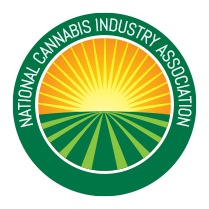What’s the difference between track-and-trace software and seed-to-sale software? Are they the same thing? Yes and no. In this short post, we’ll point out some distinctions between the two types of cannabis tracking systems.
The US cannabis industry is one of the most strictly regulated and highly competitive industries in the nation. The name of the game for licensed cultivators is to A) minimize the cost per gram and B) stay out of regulatory trouble.
To that end, there are two indispensable technologies that allow cannabis companies to maintain a competitive edge while at the same time remaining in regulatory compliance.
The first is end-to-data tracking and analysis. In the cannabis industry, the process of production begins with the seed and ends with the sale. Systems that facilitate the gathering and collating of data related to the cultivation process are, therefore, referred to as seed-to-sale software systems.
The second indispensable technology enables cannabis operations to comply with state regulations. In addition to being able to track cannabis crops and products from seed to sale, these regulations typically require the ability to trace products back to their origins in the event of a recall, hence the term track-and-trace software, also sometimes referred to as traceability systems.
It’s important to note that because these systems are very similar, the two terms are sometimes used interchangeably. Some states refer to their traceability system as a seed-to-sale system. However, there are some distinct differences in these systems’ capabilities.
Seed-To-Sale Software
In the pursuit of profitability, growers of not only marijuana but also hemp need to meticulously track cultivation and processing from seed to final sale.
There are two critical activities that these systems must facilitate. The first is tracking the growing and curing process. The second is tracking inventory once it has been produced. But there’s more to seed-to-sale software than keeping inventory.
The ideal seed-to-sale system should provide a grower with the ability to track and report on all aspects of the growing process. This includes the tagging and tracking of individual plants and batches through to harvest and curing. It also includes the ability to track a multitude of cultivation variables along the way including electricity and water usage, nutrient and pesticide usage, temperature and humidity, growth benchmarks, plant health, and so forth. In many cases, the cultivation process is tied into the data system in order to automate functions such as irrigation and climate control.
Having the capability of measuring and tracking all of these critical data points gives growers the ability to pinpoint efficiencies in the growing process and develop actionable plans to increase yields and reduce their cost-per-gram.
Small adjustments in growing conditions can result in enormous differences in final yields. Without end-to-end data tracking and reporting, growers are at the mercy of guesswork.
Once a crop is harvested and processed the data collection activity moves from tracking cultivation variables to tracking inventory facts. This often includes transfers of inventory to and from labs and the addition of lab reports as well as sales and deliveries to manufacturers of consumer products, distributors, and retailers.
Track-and-Trace Software
Cultivators benefit greatly from end-to-end tracking of cultivation variables. But state regulators generally do not require the reporting of these variables. The data that matters the most to regulators relates to dynamic inventory tracking.
Every seed, every clone, every crop, every harvest yield, every inventory addition and subtraction including disposal of waste must be tracked in a manner that facilitiates reporting in order to remain in compliance with state regulations.
Although regulators do not generally require growers to report cultivation variables, many state regulatory systems require growers to record and store data on activities such as pesticide use. Although reporting of these activities is generally not required, record-keeping is required. Furthermore, regulators generally require growers to provide access to these records upon request.
In order to collect and track inventory data, most state regulatory agencies maintain track-and-trace systems of their own. Alaska, California, Colorado, Nevada, and Oregon are among the states using a system known as METRC. Another system called BioTrackTHC is in use in Arkansas, Illinois, New York, Deleware, New Mexico, and North Dakota. MJ Freeway currently provides Pennsylvania and Washington state with seed-to-sale tracking. And Rhode Island utilizes Kind Agrisoft.
The main distinction here is that seed-to-sale systems provide producers with the ability to track production variables while track-and-trace systems do not.
Viridian Sciences Offers Robust Seed-To-Sale Tracking and Regulatory Reporting
Viridian Sciences is a robust enterprise resource planning (ERP) platform that empowers cannabis companies to not only track and report cultivation data and inventory but also to manage all data-dependent aspects of running a cannabis operation including bookkeeping and accounting, human resource management, security systems management, and much more. Viridian Sciences utilizes the world’s most recognized financial software solutions, SAP Business One, which runs over 60,000 small to mid-sized businesses to-date. Our system is also compatible with all state track-and-trace systems for easy regulatory reporting.
Viridian Sciences was one of the first ERP providers in the cannabis space. We pride ourselves on providing a world-class Enterprise Resource Planning (ERP) solution for the cannabis industry.
To schedule a demo call (385) 323-9115.



